第23章 CHAPTER Language(6)
The question of verbs leads us to another matter bearing on the subject of impersonality; namely, the arrangement of the words in a Japanese sentence. The Tartar mode of grammatical construction is very nearly the inverse of our own. The fundamental rule of Japanese syntax is, that qualifying words precede the words they qualify; that is, an idea is elaborately modified before it is so much as expressed. This practice places the hearer at some awkward preliminary disadvantage, inasmuch as the story is nearly over before he has any notion what it is all about; but really it puts the speaker to much more trouble, for he is obliged to fashion his whole sentence complete in his brain before he starts to speak.
This is largely in consequence of two omissions in Tartar etymology.
There are in Japanese no relative pronouns and no temporal conjunctions; conjunctions, that is, for connecting consecutive events. The want of these words precludes the admission of afterthoughts. Postscripts in speech are impossible. The functions of relatives are performed by position, explanatory or continuative clauses being made to precede directly the word they affect.
Ludicrous anachronisms, not unlike those experienced by Alice in her looking-glass journey, are occasioned by this practice. For example, "The merry monarch who ended by falling a victim to profound melancholia" becomes "To profound melancholia a victim by falling ended merry monarch," and the sympathetic hearer weeps first and laughs afterward, when chronologically he should be doing precisely the opposite.
A like inversion of the natural order of things results from the absence of temporal conjunctions. In Japanese, though nouns can be added, actions cannot; you can say "hat and coat," but not "dressed and came." Conjunctions are used only for space, never for time. Objects that exist together can be joined in speech, but it is not allowable thus to connect consecutive events.
"Having dressed, came" is the Japanese idiom. To speak otherwise would be to violate the unities. For a Japanese sentence is a single rounded whole, not a bunch of facts loosely tied together.
It is as much a unit in its composition as a novel or a drama is with us. Such artistic periods, however, are anything but convenient. In their nicely contrived involution they strikingly resemble those curious nests of Chinese boxes, where entire shells lie closely packed one within another,--a very marvel of ingenious and perfectly unnecessary construction. One must be antipodally comprehensive to entertain the idea; as it is, the idea entertains us.
On the same general plan, the nouns precede the verbs in the sentence, and are in every way the more important parts of speech.
The consequence is that in ordinary conversation the verbs come so late in the day that they not infrequently get left out altogether.
For the Japanese are much given to docking their phrases, a custom the Germans might do well to adopt. Now, nouns denote facts, while verbs express action, and action, as considered in human speech, is mostly of human origin. In this precedence accorded the impersonal element in language over the personal, we observe again the comparative importance assigned the two. In Japanese estimation, the first place belongs to nature, the second only to man.